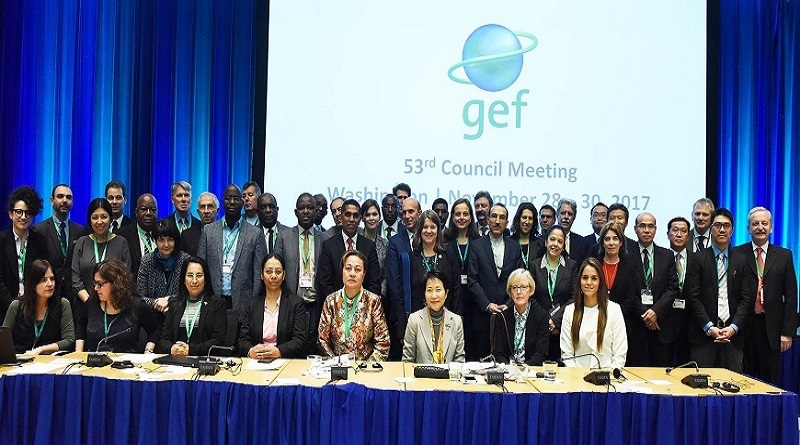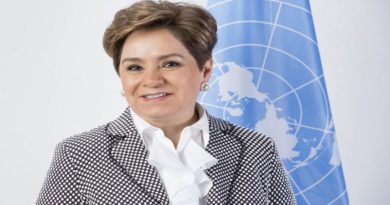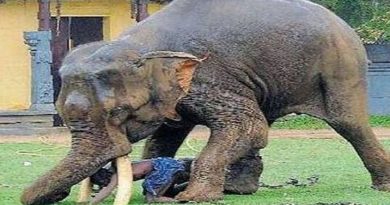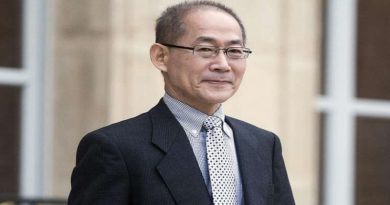GEF Council approves $500m work program focused on LDCs, SIDS
The Global Environment Facility (GEF) 53rd Council wrapped up on Thursday November 30, 2017 after approving a work program of more than $500 million that puts a strong emphasis on support for Small Island Developing States (SIDS) and Least Developed Countries (LDCs).
At the closing of the 53rd GEF Council, Naoko Ishii, GEF CEO and Chairperson, thanked participants, noting “we achieved the five things I hoped for.” Stressing that “we have built sufficient trust among ourselves so that we can tackle difficult issues in the future,” she highlighted the achievement of approving “a half-billion dollar work program; new policies, and laying the foundation for others”.
The work program, one of the largest in the current GEF funding cycle (GEF-6), spans all GEF focal areas and regions and comprises 83 projects and one programmatic approach. 101 recipient countries are set to benefit from GEF support, including 38 LDCs and 28 SIDS.
The full list of approved projects can be found in the co-chairs summary of the meeting, which also details decisions taken to approve a new gender equality policy, a revised stakeholder engagement policy, and an updated policy on ethics and conflict of interest for Council Members, Alternates and Advisers.
Closing the meeting, Naoko Ishii, GEF CEO and Chairperson, thanked participants, noting “we achieved the five things I hoped for.” Stressing that “we have built sufficient trust among ourselves so that we can tackle difficult issues in the future,” she highlighted the achievement of approving “a half-billion dollar work program… new policies, and laying the foundation for others”.
The GEF Council meeting included updates from the Secretariat on plans to review the GEF’s social and environmental safeguards and fiduciary standards, and a new vision to enhance civil society engagement with the GEF. The GEF also presented the Annual Portfolio Monitoring Report, and the CEO presented a report on the status of the GEF-7 replenishment.
During the meeting, Rosina Bierbaum, Chairperson of the Scientific and Technical Advisory Panel (STAP) presented a report, and the Independent Evaluation Office (IEO) presented its Semi-Annual Evaluation Report and an update on the Sixth Overall Performance Study (OPS6).
There was also a session on the non-grant instrument (NGI), and a panel discussion on GEF’s relations with the Conventions, including Rolph Payet, Executive Secretary of the Basel, Rotterdam, and Stockholm Conventions, and Jacob Duer, Principal Coordinator of the Interim Secretariat of the Minamata Convention on Mercury.
Back-to-back with the GEF Council meeting, the 23rd Meeting of the Least Developed Countries Fund (LDCF) and the Special Climate Change Fund (SCCF) Council took place. In her opening remarks, Naoko Ishii highlighted recent momentum around building resilience and catalyzing adaptation finance given the dire effects of recent extreme weather events around the world.
She commended the governments of Germany, Sweden, Belgium and the Wallonia region who all pledged to the LDCF for a total of over $90 million at the UN Climate Conference (COP23) in Bonn. Calling the support “one of the highlights of COP23”, Ishii also noted the news from COP23 of a new fund, supported by SCCF, to boost adaptation efforts in some of the world’s most vulnerable countries.
At the opening of the Council meeting, Switzerland announced new contributions to the LDCF and SCCF. More information can be found in the joint summary of the chairs.
H.E. Mrs. Jane Chigiyal, Ambassador and Permanent Representative of Micronesia to the United Nations, co-chaired both the GEF Council and LDCF/SCCF meetings with Naoko Ishii, GEF CEO and Chairperson.
The GEF Council was preceded by a one day consultation with CSOs on November 27.




